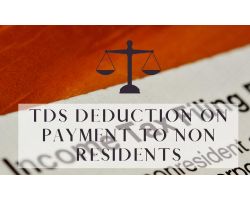An expatriate means a person visiting India or an Indian visiting outside India for employment purposes. In this article, we shall discuss the taxation & legal formalities to be followed by Expats on arrival in India.
LEGAL FORMALITIES TO BE FOLLOWED BY EXPATS
1. Registration of Foreign National with Foreigners Regional Registration Officer (FRRO)
All foreigners visiting India on a long-term visa of more than 180 days, are required to get FRRO registration done within 14 days of their arrival in India. Foreigners (including minors above the age of 16) need to get their registration done. Therefore, the family members of the expatriate, above the age of 16 will have to get themselves registered.
2. Opening of Bank Account in India
3. Permanent Account Number (PAN)
PAN, a unique identification number given by the Indian income tax authorities and an expat needs to obtain it in case his/her income is taxable in India. This is also used for filing a return of income in India.
4. Filing of Tax return
The due date for filing the India tax return is 31 July following the end of every fiscal year. The return can be filed electronically. The return may be subjected to scrutiny by revenue authorities. Form 67 along with Return of Income if claiming Foreign Tax Credit (FTC) in Return of Income in India.
5. Income Tax Clearance Certificate (ITCC)
An assignee who is repatriating back to home country should obtain an ITCC i.e. No Objection Certificate from the Income Tax Authorities. This certificate is required to be presented to the immigration authorities at the time of departure from India. Undertaking to be furnished by a person not domiciled in India at the time of his departure from India in Form No.30A.Income Tax Authority shall on receipt of such undertaking in Form No.30A,immediately give to such person a no-objection certificate (Tax Clearance Certificate) for leaving India in Form No.30B.
DETERMINATION OF RESIDENTIAL STATUS OF EXPATRIATES
Income Tax Act, 1961 of India determines the taxability of source-based Income & the residential status of the person.
It is not based on citizenship or domicile. In India, the residential status of Individuals are divided into three (3) categories:
- Resident and ordinary resident (‘ROR’)
- Resident but Not Ordinarily Resident(‘RNOR’)
- Non-Resident(‘NR’)
- Resident
An individual is considered to be a resident if he satisfies any of the following conditions:
√ whose period of stay in India is 182 days or more in the previous year or; [Section 6(1)(a)] (General)
√ whose period of stay in India is 365 days or more in 4 years preceding the previous year and 60 days or more in the previous year. (Alternate) Note: Alternate criteria does not apply to Indian Citizen leaving for employment, etc. - Resident but not ordinary resident (RNOR)
√ An Individual shall be considered as RNOR in the previous year if he satisfies any of the following:
√ who has been a Non-Resident (NR) in India in 9 out of the 10 previous years preceding that year, or
√ who has stayed in India for a period of 729 days or less during the 7 previous years preceding that year
Indian Citizens having Indian Sourced Income in excess of Rs. 15.00 lacs, with more restricted criteria –Introduced from FY 2020-21 (A.Y. 2021-22)
Always be an RNOR of India unless liable to tax in any other country/territory by reason of his domicile or residence.
3. Non-Resident (NR)
TIE-BREAKER RULE
In the case of an individual who is a resident of both the contracting states tie-breaker Tests :-
- Permanent home
- Centre of vital interest
- Habitual abode
- Nationality
- Competent authorities
The tie-breaker rules are required to be followed sequentially as may be provided in the DTAA.
TAXATION OF EXPATRIATES
- Taxation of Resident
Resident is taxed on the basis of its global income in India arising during the Financial year. Therefore, all three sources shall be included in the scope of income and accordingly be taxed. - Taxation of RNOR
Income which is received or deemed to be received in India or accrued or arise or deemed to accrue or arise in India shall be included in the scope of income of RNOR. Further, only that income which has accrued or arose outside India and is derived from a business controlled in or a profession set up in India shall be included in the taxable income of RNOR. - Taxation of Non-Resident
Only the income which is received or deemed to be received in India or accrued or arises or deemed to accrue or arise in India shall be included in the scope of income of NR.












24 Likes